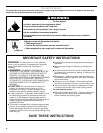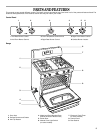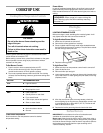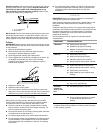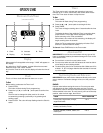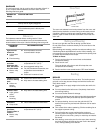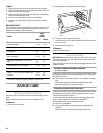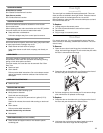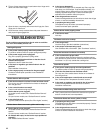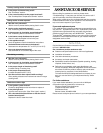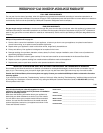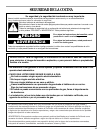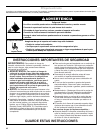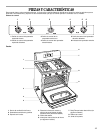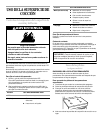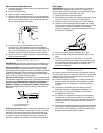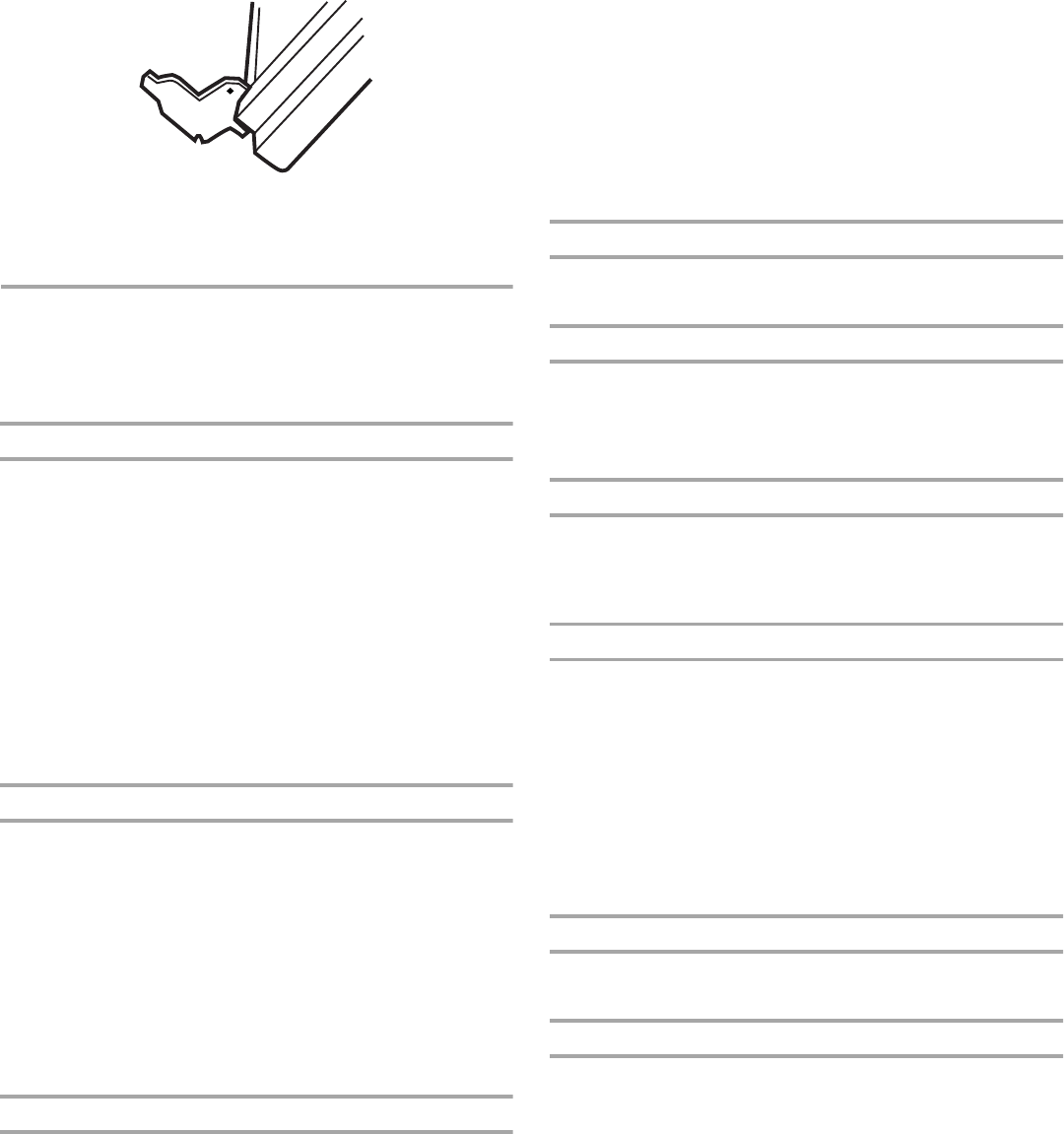
12
3. Tilt top of door toward range. Insert bottom door hinge notch
down onto front frame edge.
4. Open the door completely and remove the hinge pins. Save
hinge pins for future use.
5. Close the door slowly to assure door side panel clearance
and proper hinge engagement.
TROUBLESHOOTING
Try the solutions suggested here first in order to avoid the
cost of an unnecessary service call.
Nothing will operate
■ Is the power outlet properly wired and polarized?
Try another outlet to check for proper wiring and polarity.
■
Is the power supply cord unplugged?
Plug into a properly grounded 3 prong outlet.
■ Has a household fuse been blown or has the circuit
breaker been tripped?
Replace the fuse or reset the circuit.
■
Is the main or regulator gas shutoff valve in the off
position?
See Installation Instructions.
■
Is the range properly connected to the gas supply?
Contact a trained repair specialist or see Installation
Instructions.
Surface burners will not operate
■
Is this the first time the surface burners have been used?
Turn on any one of the surface burner knobs to release air
from the gas lines.
■
Is the control knob set correctly?
Push in knob before turning to a setting.
■
Are the burner ports clogged?
On sealed burner models, see “Sealed Surface Burners”
section.
On open burner models, see “Surface Burners” section.
■
Is the pilot light out?
Light the surface burner pilots. (See “Pilot Lights” section.)
Surface burner flames are uneven, yellow and/or noisy
■
Are the burner ports clogged?
On sealed burner models, see “Sealed Surface Burners”
section.
On open burner models, see “Surface Burners” section.
■
On models with caps, are the burner caps positioned
properly?
See “Sealed Surface Burners” section.
■ Is the burner damaged?
On models with caps, look for warped cap. Place cap, flat
side-down, on a flat surface. If cap wobbles noticably, it is
warped. Place cap on different burner for further check of
warping. Replace warped cap. Contact a trained repair
specialist if the condition does not improve.
■
■■
■
Is the air/gas mixture correct?
Contact a designated service technician to check the air/gas
mixture, or see the Installation Instructions.
■
Is propane gas being used?
The appliance may have been converted improperly.
Contact a trained repair specialist.
Surface burner makes popping noises
■ Is the burner wet?
Let it dry.
Cookware not level on cooktop
■
Is the range level?
Level the range. (See the Installation Instructions.)
■ Is the proper cookware being used?
Use cookware with a flat bottom. (See “Cookware” section.)
Excessive heat around cookware on cooktop
■ Is the cookware the proper size?
Use cookware about the same size as the surface cooking
area, element or surface burner. Cookware should not extend
more than 1 in. (2.5 cm) outside the cooking area.
Oven will not operate
■
Is the power outlet properly wired and polarized?
Try another outlet to check for proper wiring and polarity.
■
Is this the first time the oven has been used?
Turn any one of the surface burner knobs on to release air
from the gas lines.
■
Is the oven temperature control knob set correctly?
See “Cooktop/Oven Temperature Controls” section.
■
Is the main or regulator gas shutoff in the off position?
Contact a designated service technician or see the
Installation Instructions.
Oven makes muffled ticking noise when in use
■
This is normal and occurs when the oven burner cycles on
and off to hold the set oven temperature.
Oven burner flames are uneven, yellow, or noisy
■
Is propane gas being used?
The appliance may have been converted improperly. Contact
a trained repair specialist.
■
Is the air/gas mixture correct?
Contact a designated service technician to check the air/gas
mixture or see the Installation Instructions.



